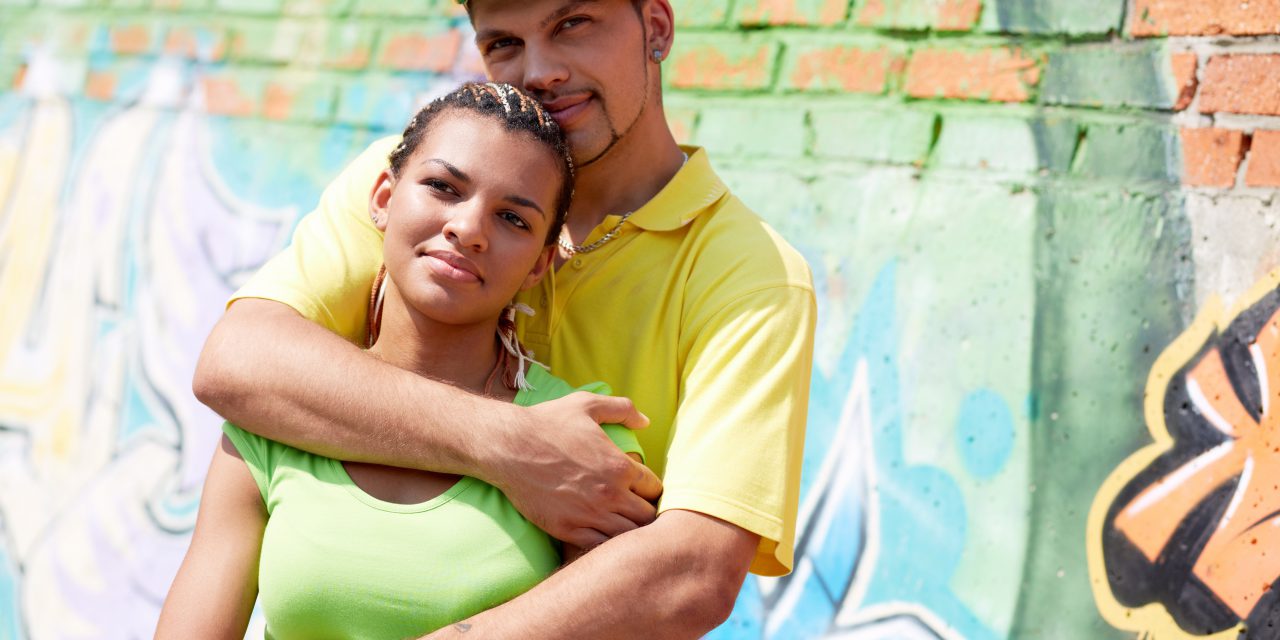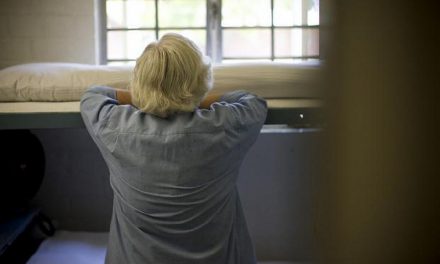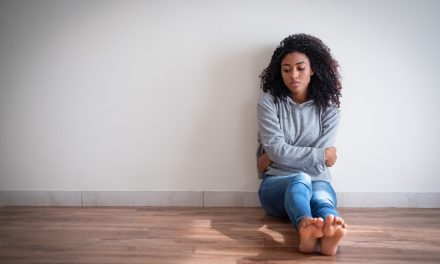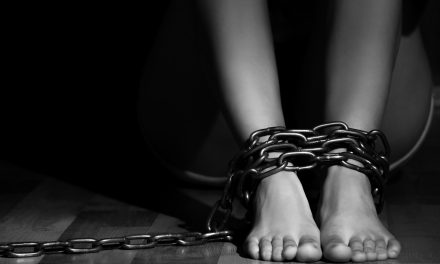By Elena Cleaves
According to the Kansas City Police Department (KCPD), an increase in reported cases of domestic violence (DV) and intimate partner violence (IPV) has occurred in Kansas City since the stay-at-home order took effect on March 24. The order came as part of nationwide shutdowns to help prevent the spread of the novel Coronavirus, which has also led to increased cases of unemployment, creating high tensions and increased opportunities for violence in the home as spouses and children are staying home from work and school.
These opportunities are especially prevalent in rural and lower-income areas, where increased IPV-related emergency hospitalizations suggest difficulty accessing preventive safety resources, health insurance, and a lack of intervention before violence escalates, resulting in similarly higher levels of IPV-related homicide. In Kansas City’s “deadliest weekend” of 2020 in August, six people were killed in homicides. Some were the result of domestic violence disputes — all were linked to heightened tensions from the Coronavirus and economic shutdowns.
Decades of segregation and redlining along Troost Avenue have created a severe racial and financial divide in Kansas City as well as a life expectancy difference of 15 years between neighboring ZIP codes. Paired with increased unrest between Black residents and KCPD during recent police brutality and Black Lives Matter protests, neighborhoods east of Troost are experiencing a perfect storm for DV and IPV victims as police and emergency services are less likely to be called.
Because of this, local shelters have seen a dramatic increase in demand for space and resources including Synergy Services, who had three shelters operating beyond capacity back in April. Roach “Ms. E” Ellington, Councilman Brandon Ellington’s mother, has a project nearly 20 years in the making that has the potential to be one solution.
G.Y.R.L., Giving Yourself Real Love, is a support group for victims and survivors of violence that extends to all races, genders, orientations, and ages. The group is currently working to establish a “village” comprised of shelters, educational centers, and other resources for survivors and their children in the 39th block of Kansas City.
G.Y.R.L.’s mission is to break the cycle of domestic violence by providing safe, supportive services that educate and empower those impacted by DV and abuse. Ms. E and the group aim to break down stigmas surrounding DV, especially regarding how children and families experience and talk about abuse.
There is a strong “for us, by us” mentality in G.Y.R.L. cultivated with weekly evening chats with executive members, volunteers, and neighbors in the streets. After inquiring about the set of three vibrant purple houses and the overflowing memorial rose garden that currently make up the G.Y.R.L. village and hearing Ms. E’s mission, a curious passerby laughed, “It’s interesting to see this work being done in this neighborhood, but that’s exactly what this area needs.”
Ms. E has been working with DV survivors since 2000, when she created Voices of the People to stand up to police brutality happening against her family, eventually leading her to work with children in the D.A.R.E. program at schools. After realizing she was able to relate to the children better than some of the other adults in the program, she started a writing group encouraging the kids to open up about their experiences at home.
While her project was successful and helped the children to have open conversations, the subject matter was deemed too explicit. She stepped away from advocacy work only to run into one of the children years later, having overcome her violent childhood and pursued a fulfilling life and career, encouraging Ms. E to return to her mission.
In her effort to support violence survivors, she was met with pushback from every group she tried to connect with, including churches. “They didn’t want to hear about their family’s abuse. In the Black community, we live with it.” Her main purpose has always been to “pull away the mask of it and take away the shame.” She says, “We know where the hospitals are, the jails, everything else. So why not tell people where they can get domestic violence help?”
The purple houses and rose garden have certainly gotten the community’s attention. After four separate anonymous attempts to mow over and destroy the memorial garden, 200 rose bushes currently stand surrounding a pond, a treehouse constructed by volunteers, and a stage for community performances.
A soft opening of the village was held Aug. 30, featuring a dedication of the garden to 200 victims of DV, a testimony to the work of G.Y.R.L. by Councilman Ellington, a presentation of a Community Leadership and Achievement award to Ms. E from One Love, performances by City in Motion dancers, and various talent showcases and skits by the children in G.Y.R.L.’s Young Kings and Princesses programs. Ms. E hopes that events like this will show the community the village’s potential and drive volunteer and financial support to be able to complete renovations on the buildings and expand the classes for children.
One of the buildings currently houses the administrative office as well as the Young Kings and Princesses programs where children learn everything from manners and personal hygiene to culinary skills and creative writing. In upcoming weeks, Ms. E will be implementing an entrepreneur program into the curriculum as well as provide an allowance for each child, emphasizing the value of money and teaching the kids how to budget, pursue entrepreneurial careers, and more.
The kids will also have opportunities to sell merchandise they make in their creative classes at local vendor fairs. “We’re encouraging them to pursue their passions and be entrepreneurs because the job field is changing and we want them to be prepared.”
As these programs continue to expand, G.Y.R.L.’s next priority is to get the shelters up and running to meet the increased demand for space and safety in the area. To this day all of the group’s projects have been funded and completed by Ms. E, G.Y.R.L. board members and volunteers, and financial as well as material donations. “If we don’t have the funding, do we still exist? Yes. We still have the same problems,” she mentions, while discussing community grievances with other executive board members.
While G.Y.R.L. has proven to overcome every obstacle thrown its way, the group hopes it can continue to prove the village’s importance to the community, recruit volunteers, and receive funding to speed up the process and get help to those who need it most. The ever-ambitious Ms. E already has her sights set on more mostly vacant neighborhoods in the area that have the potential to become villages such as the one she has created. In a time where community-led alternatives to police are sought more and more, especially for Black and Indigenous people of color, G.Y.R.L. has the potential to expand greatly and save men, women, LGBTQ, and family members of all ages from DV and abusive households.
G.Y.R.L. is currently looking for members to join its advisory board to help oversee administrative and social projects. Volunteers are needed for renovation and landscaping work to complete the shelters as well as weekly maintenance of the rose garden and yards. Donations of art supplies, notebooks and writing utensils, sports equipment, food and drinks, and personal hygiene items are always welcome to supplement the Young Kings and Princesses programs. The group is also looking for volunteers interested in teaching any creative or practical skill classes in addition to the courses currently offered. Anyone interested in getting involved with G.Y.R.L. or Young Kings and Princesses can contact infogyrl@gmail.com or call 816.622.2927.
RURAL COMMUNITIES EXPERIENCE DISPROPORTIONATE RATES OF DOMESTIC VIOLENCE-RELATED HOSPITAL VISITS LIKELY DUE TO LACK OF PREVENTIVE RESOURCES
A study conducted by Southwest Rural Health Research Center found that intimate partner violence (IPV) not only disproportionately affects women, but especially those in rural communities compared to their male and urban counterparts.
As defined in the study, intimate partner violence, also referred to as domestic violence, includes physical violence, sexual violence, stalking, psychological aggression, and reproductive control by a current or former boyfriend or girlfriend, domestic partner, or spouse. The study explored IPV-related emergency department visits in rural and urban communities and further broke down disparities based on gender as well as income distribution. Between 2009-2014, there were an estimated 156,945 emergency department visits in the U.S. for patients ages 15-64 with a “battering and other maltreatment by spouse or partner”, averaging 26,158 visits per year in this 6-year period.
Among these visits, women make up a drastically disproportionate percentage compared to men in the same areas. Women accounted for 93% of intimate partner violence-related emergency department visits among patients ages 15-64 in urban areas, compared to 95% in rural areas. Men in rural areas made up only 5% of intimate partner violence-related emergency department visits compared to 7% in urban areas. Prevalence of intimate partner violence-related emergency department visits among those between the ages 15-64 was higher in rural versus non-rural areas in all regions except the Midwest (15.5 vs. 11.9 per 100,000 population).
This disparity in hospital visits is also rooted in differences in wealth and access to certain health services. Rural men and women admitted to the emergency department with an intimate partner violence-related diagnosis were more likely to be in the lower half of the income distribution (87% vs. 59%) and to have public health insurance (48% vs. 44%) than their urban counterparts. Research suggests that small, close-knit rural communities may also have a greater problem of underreported victims of IPV, likely in part due to these wealth and accessibility disparities.
Financial and physical access to preventative services, regular health care, and routine screening for IPV can be factors surrounding whether intervention for a person experiencing IPV is possible before violence escalates. Higher numbers of IPV-related hospitalizations in rural areas suggests a lack of accessibility to preventative services, resulting in these areas also having higher levels of IPV-related homicide.
As concluded in the study, there is a need for more recent nationwide data to understand rural-urban disparities in IPV and inform policy recommendations aimed at preventing IPV and improving health outcomes for persons exposed to IPV. This is especially true due to the large number of IPV cases that go unreported in these areas where preventive services are lacking or inaccessible. Along with finding more data, it is imperative that work is done to ensure rural and urban communities have equal opportunity to intervene in cases of IPV before violence results in death.








